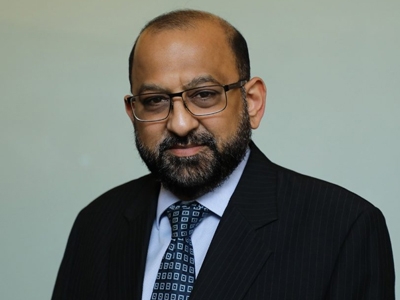As the CEO of the newest fund house, what are your three key priorities?
First in priority is to come up with products that are differentiated and can make a meaningful difference to our investors’ lives. The second would understandably be to grow AUM. And third is to remain true to the mandate and deliver in line with it. For example, if an investor has taken money in a short term fund, the return should be commensurate with the return of the short term assets in a risk-adjusted manner so that we don’t expose clients to higher risk. In fact, we have carry three words in our logo - clear, credible and consistent which mean clear mandate, credible investment process and consistent focus on risk-adjusted returns.
Where do you want to see Trust Mutual Fund five years down the line? How have you planned to achieve this?
We will come out with fixed income funds first. At the same time, we will be working on designing equity, international and hybrid schemes as well.
We have devised a unique, structured investment methodology - LimitedActiv, which we have copyrighted. Under this approach, we define an investment universe through objective rule based filtering, and develop an internal model portfolio from within the universe. The fund manager then builds a portfolio around the model portfolio, within predefined deviation limits in terms of allocations and with help of proxies within the overall universe. This LimitedActiv style is active but with built in safeguards, and is likely to deliver better risk adjusted returns in line with the underlying asset class.
Talking about debt funds that we are launching, we have tied up with CRISIL, who help us in defining the investment universe as well as develop the model portfolio. In due course, we will be developing products in other asset classes and launching differentiated schemes under our structured investment approach.
What will make Trust Mutual Fund different from others?
We have collaborated with an external party CRISIL as our strategic knowledge partner and have created a structured investment process with transparency.
Let me explain this with the example of Trust Short Term Bond Fund. Illiquid companies are filtered out from AAA rated companies. Illiquid companies are those, whose spread or yields are very high compared to other AAA companies. Companies that don’t have a stable outlook and companies having a rating outstanding that is not AAA are also eliminated. For instance, some companies are rated by two rating agencies, and if AA+ is assigned by one of the rating agencies, that company is filtered out. Further, there must be a minimum of two years of stability in the rating. This creates a refined universe for our fund managers to invest in.
From the beginning Trust MF has been focussing on debt products. What is the rationale for this? What are your plans to expand your offerings in equity space?
The Trust Group is among the top five debt capital market players. It also has a distribution and broking business, debt PMS business, wealth distribution arm (TrustPlutus) and equity PMS business. One of the Group’s strengths is equity management and asset allocation. It has done well under Chanakya Wealth Creation, its PMS brand which has about Rs. 5000 crore of assets and has delivered post fee/expense return of 19%-20% over the last ten years.
Since our visibility and experience in the fixed income space was well-known, we decided to venture into this segment first. After building a stable corpus, we will move to riskier asset classes.
In a very short span, Trust MF has reached Rs.1000 crore AUM milestone. What are the three factors in your view that helped achieve this?
I think most of the distributors and investors appreciate our partnership with a strategic knowledge partner, structured investment approach and back-tested superiority in terms of risk-adjusted returns. All these things have appealed to the investors to participate. The background work done by us in addition to the ability to communicate with clients across geographies with the support of technology has helped us create a mark in the fund categories that we have launched. We see this traction to increase further once the pandemic is over.
Many distributors shy away from debt funds, Reason - They feel that investors have adequate exposure to debt funds through PPF, pension schemes and bank FDs. In such a scenario, why do you think debt funds deserve a place in their clients' portfolio?
Prudent investors must split their portfolio into fixed income and equity. Debt is required to protect portfolios from market swings and also to bring stability. Whenever there is an economic slowdown, interest rates come down, bond prices go up, there is an opportunity to invest in debt funds. If you were to review the last ten-year, fifteen-year history, most likely you will find that debt funds have outperformed fixed deposits. Also, when you look at taxation, the benefits of debt funds have been higher.
Many MFDs find it difficult to understand debt products. How can the industry make the debt fund narrative simpler for investors and distributors?
Extrapolating based on past returns is not the right thing to do. Creating a logical correlation can help in understanding debt funds better. Instead of comparing with fixed deposits, they should be linked to something which is floating. So if inflation is there, they should be able to beat it by 1.5%-2%. This helps in comprehending debt funds for their floating rate mutual fund return rather than fixed rate bonds.
Most debt funds have been delivering returns at par with bank FDs. Why do you think distributors should continue to recommend debt funds?
Investing in debt funds allows taking benefit from movements of interest rates. For instance, suppose interest rates which were at 8%, drop by 3%, the returns may shoot up by 20%-25%. In such cases, investors can book profits and move to a different part of the yield curve. However, investors cannot benefit from the movements of interest rates in the case of fixed deposits. Fund managers must be allowed to use the volatility in interest rates to generate alpha for investors. Further, debt funds allow having a more diversified portfolio than taking the exposure to a single bank.
Of the total 34000 active MFDs, 8200 MFDs i.e. 23% of them have debt AUM of at least Rs.1 crore. How can the industry encourage active distribution force to increase focus on debt funds.
Having a short term view and exposure to risky products may impair client relationships if something unpleasant were to happen to their portfolios. There are merits of stabilising portfolios by adopting a balanced approach and incorporating debt funds. Stability ensures long term welfare of clients and can lead to long-lasting client relationships, which in turn can create a stable stream of revenue for MFDs.
The regulator has introduced the concept of swing pricing mechanism in India. What is your view on this?
SEBI has been including globally acceptable best practices as well as new kinds of measures to deal with the concerns that the industry has been facing. We are still a young industry and the rules of engagement continue to evolve. Swing pricing is a globally accepted best practice. The whole idea is that a long term investor should not subsidise the short term investor. So the volatility that is caused by short term inflow and outflow of funds, should not impact the return which is for a long term investor. Let us see how and by when it is implemented, but I am sure it will be good for investors.







